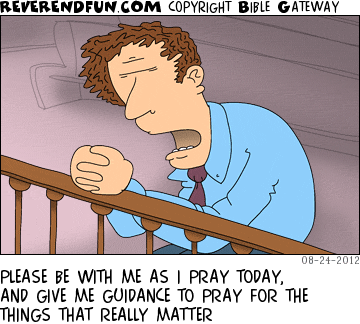Several days ago I read this wonderful article by Brandon Smith over at the Gospel Coalition that reminds us the “we are Gomer.” And he's not talking about about a goofy redneck who joins the Marines (even though some of us might actually resemble him). He's talking about the biblical Gomer, the wife of Hosea, the one with the questionable past and the ongoing faithlessness. You know, the one it makes us uncomfortable to talk about sometimes. The... (*whispers*)... “harlot.”
Some might get offended by the comparison. But it's dead on. And his overall point is dead on as well. It's all about God's faithfulness, not ours. If our salvation, our relationship with God, our whatever; if it was dependent upon our own faithfulness....wow. Don't even want to think about it.
But I have been thinking about the subject lately. Primarily because I see just how often I fail. How often I don't live up to the standards; not just my own, but the clearly stated standards in God's Word. I see how often I struggle. How often I'm no different than Peter in his moment of weakness, denying Christ. Not that I've been put in that spot. But my heart is no different.
Lately I've been reminded just how much I need a faithful God, because my own heart is so weak and weary, “prone to wonder” as the song says. But then I remember that other song. You know the one.
Great is Thy faithfulness, O God my Father,
There is no shadow of turning with Thee;
Thou changest not, Thy compassions, they fail not
As Thou hast been Thou forever wilt be.
Great is Thy faithfulness! Great is Thy faithfulness!”
Morning by morning new mercies I see;
All I have needed Thy hand hath provided—
Great is Thy faithfulness, Lord, unto me!
Summer and winter, and springtime and harvest,
Sun, moon and stars in their courses above,
Join with all nature in manifold witness
To Thy great faithfulness, mercy and love.
Pardon for sin and a peace that endureth,
Thine own dear presence to cheer and to guide;
Strength for today and bright hope for tomorrow,
Blessings all mine, with ten thousand beside!
Thomas Chisholm's words aren't even a hundred years old yet, and yet they are timeless. Such rich Biblical imagery that reminds us that we do indeed serve a faithful God. In fact, it's all about His faithfulness. Because, after all, we are just a bunch of Gomers!
And so for your edification and enjoyment, click here for a great arrangement of that wonderful hymn from Denver & the Mile High Orchestra.
Some might get offended by the comparison. But it's dead on. And his overall point is dead on as well. It's all about God's faithfulness, not ours. If our salvation, our relationship with God, our whatever; if it was dependent upon our own faithfulness....wow. Don't even want to think about it.
But I have been thinking about the subject lately. Primarily because I see just how often I fail. How often I don't live up to the standards; not just my own, but the clearly stated standards in God's Word. I see how often I struggle. How often I'm no different than Peter in his moment of weakness, denying Christ. Not that I've been put in that spot. But my heart is no different.
Lately I've been reminded just how much I need a faithful God, because my own heart is so weak and weary, “prone to wonder” as the song says. But then I remember that other song. You know the one.
Great is Thy faithfulness, O God my Father,
There is no shadow of turning with Thee;
Thou changest not, Thy compassions, they fail not
As Thou hast been Thou forever wilt be.
Great is Thy faithfulness! Great is Thy faithfulness!”
Morning by morning new mercies I see;
All I have needed Thy hand hath provided—
Great is Thy faithfulness, Lord, unto me!
Summer and winter, and springtime and harvest,
Sun, moon and stars in their courses above,
Join with all nature in manifold witness
To Thy great faithfulness, mercy and love.
Pardon for sin and a peace that endureth,
Thine own dear presence to cheer and to guide;
Strength for today and bright hope for tomorrow,
Blessings all mine, with ten thousand beside!
Thomas Chisholm's words aren't even a hundred years old yet, and yet they are timeless. Such rich Biblical imagery that reminds us that we do indeed serve a faithful God. In fact, it's all about His faithfulness. Because, after all, we are just a bunch of Gomers!
And so for your edification and enjoyment, click here for a great arrangement of that wonderful hymn from Denver & the Mile High Orchestra.









